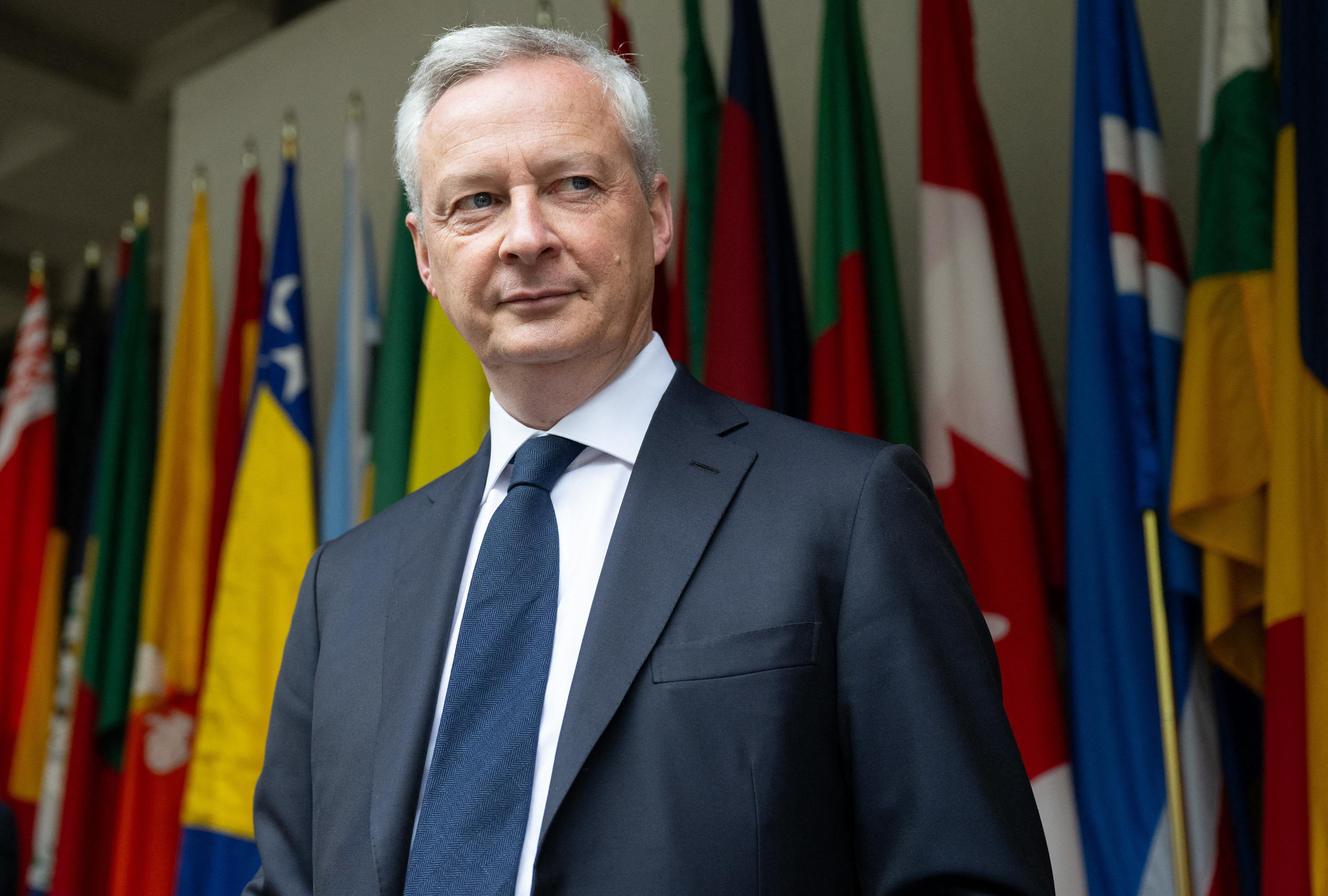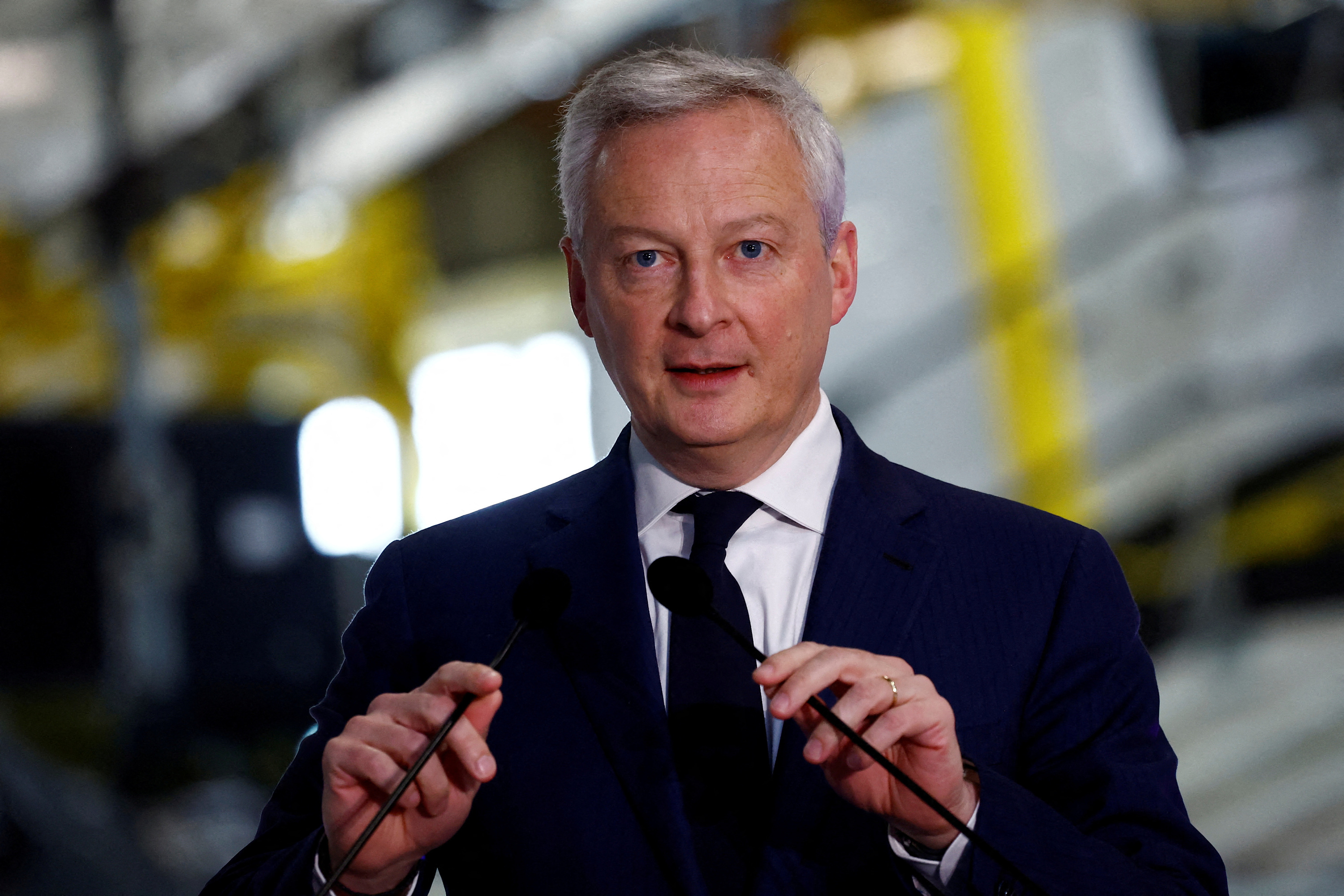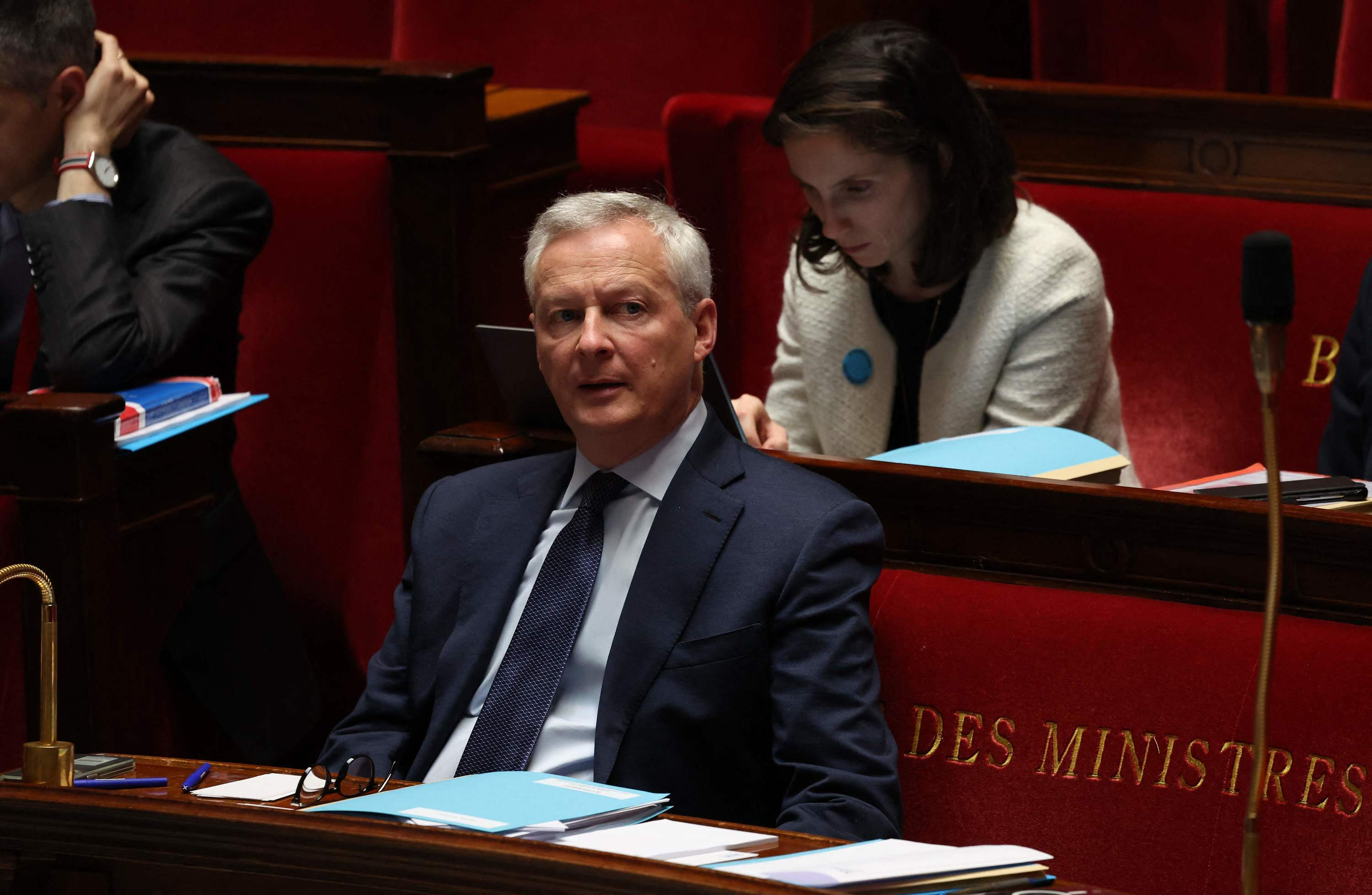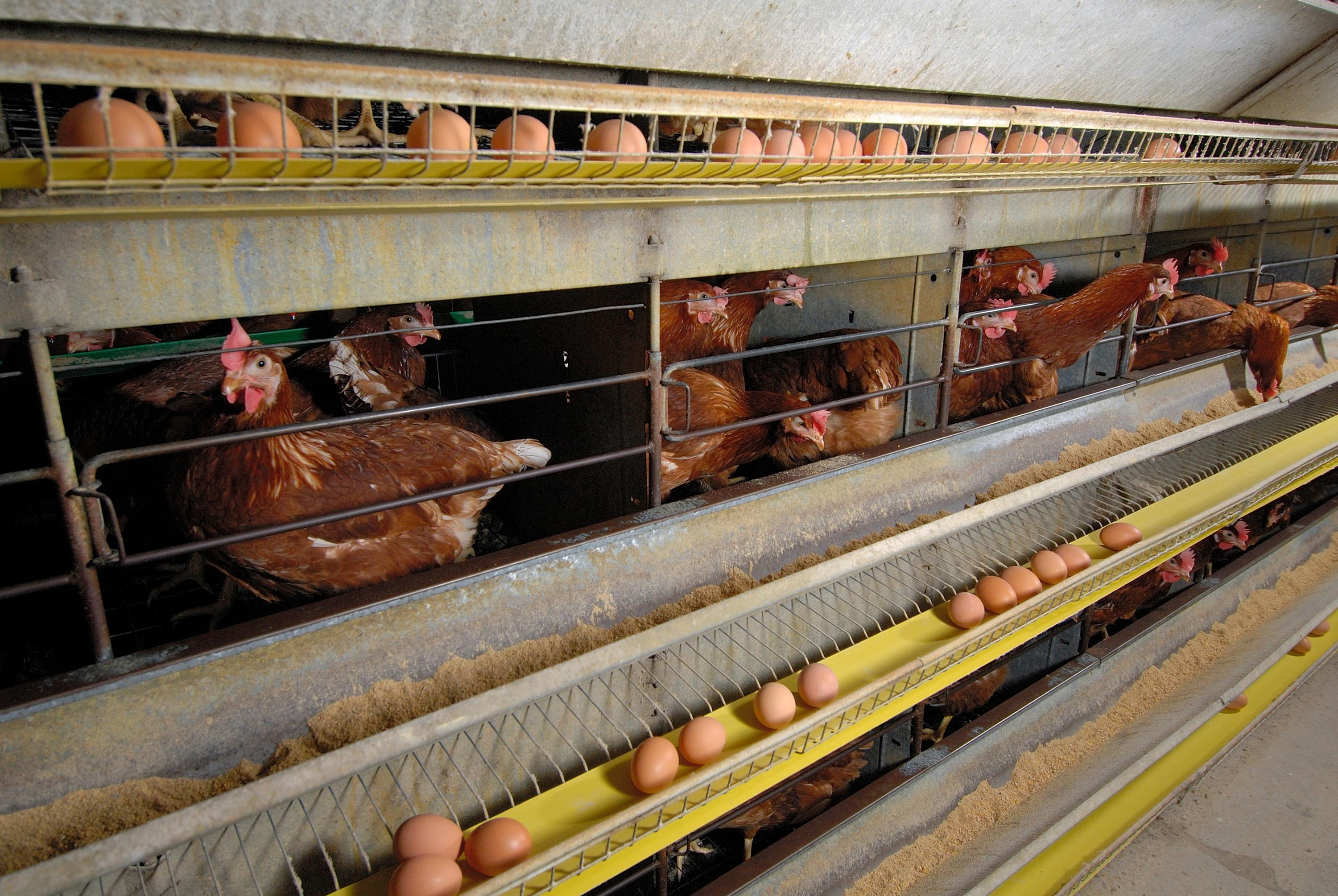Saudi Arabia has become a key player on the business, financial and geopolitical map of the world.
With two million square meters of desert (more than four times the size of Spain) and 34 million inhabitants, the main country in the Persian Gulf and the world's leading oil exporter has been searching for and carrying out million-dollar investments for several years throughout the planet and in the more diverse sectors; from technology to renewables, including sports such as football, golf and even martial arts. Its objective: diversify an economy based on oil and adapt to the changes derived from a new global energy paradigm that wants to leave fossil fuels behind.
Saudi Arabia itself has committed to achieving the goal of zero greenhouse gas emissions by 2060.
But, this strategy does not respond only to a need for survival. Through its investments around the world, Riyadh is also seeking a path to gain global influence.
In a context of global political and economic uncertainty, marked by the tensions that arose as a result of Russia's invasion of Ukraine and by the tightening of financing conditions for governments and companies, the Arab country has apparently become a source of inexhaustible of money. Their petrodollars are serving to soften the criticism that their poor relationship with human rights still arouses.
Gone is the boycott carried out in 2018 by personalities, managers and politicians from around the world invited to the second edition of the Future Investment Initiative, known as Davos del Desierto. It was his way of protesting the murder of journalist and contributor to The Washington Post Jamal Khashoggi.
Having overcome that reputational blip, the forum will celebrate its seventh edition next month with Saudi Arabia starring in the headlines of the world's economic press. This year's program has yet to close but the sixth edition included the leading figures of Wall Street, such as Ray Dalio, founder of Bridgewater; Jamie Dimon president and CEO of JPMorgan or David Solomon, president and CEO of Goldman Sachs.
High-level political representatives from the United Kingdom, Greece and Finland completed the panel along with experts in tourism, technology, sustainability and Artificial Intelligence.
Crown Prince Mohammed bin Salman is the person who has put Saudi Arabia on the global financial and geopolitical map.
At only 37 years old, he is one of the richest men in the world (it is estimated that he has a personal fortune close to 20,000 million dollars) and pilots the enormously ambitious Vision 2030 transformation plan, which he himself promoted in 2016. Although the White House pointed directly to the prince as ultimately responsible for the murder of Khashoggi, the passage of time, money and opportunity have contributed to rehabilitate his figure.
On July 16 of last year, the president of the United States (USA), Joe Biden, who in the electoral campaign for the 2020 presidential elections even said that he would turn Saudi Arabia into a "pariah" state, settled this chapter by visiting Saudi Arabia and greeting Bin Salman with a cordial fist bump.
The prince is executing his transformation plans for the country from different angles. Internally he wants to turn Saudi Arabia into a modern country with a diversified and attractive economy for foreign investment; The timid advances recorded in the area of human rights (such as, for example, allowing women to drive or not requiring a man's permission to work or travel) are going in that direction.
In parallel, he wants his country to be relevant on the geopolitical board. Its upcoming incorporation into the Brics group (the main bloc of emerging countries), its close relationship with Russia and China and the cascade of investments it is carrying out around the world are part of that strategy.
Vision 2030 is the plan that includes the objectives that Saudi Arabia, as a country, has set for that date. The investments planned until 2025 reach 360,000 million euros and oil will be its main source of financing.
Last year, the state oil company Aramco made a profit of 161 billion dollars. The country's sovereign fund, the Public Investment Fund (PIF), manages $600 billion, although it aspires to reach $1 trillion.
The country's accounts are more than healthy. Thanks to the extra income derived from the increase in the price of crude oil (as a result of the war in Ukraine), Saudi Arabia has a surplus that amounts to 13.6% of the Gross Domestic Product (GDP).
Vision 2030 foresees the privatization of 146 state companies to increase the weight of the private sector over GDP to 65%. It also aspires to raise Foreign Direct Investment (FDI) to 5.7% of GDP and increase non-oil exports from the current 16% to 50%. With these figures, Saudi Arabia could be among the ten most competitive economies in the world.
Industry and tourism will be the pillars of the transformation. In the industrial field, the Saudi government wants to multiply its annual exports of advanced technology by six. Doing so would create more than 60,000 skilled jobs, according to his calculations.
After the launch of Vision 2030, the number of industrial establishments has doubled to exceed 10,000. The idea is that by 2035 there will be some 36,000 factories at full capacity in the country.
Within the field of infrastructure, the air sector, maritime transport and railways stand out, with investments estimated at 150,000 million dollars; Saudi Arabia trusts that 65% of that amount will come from foreign capital.
The Saudi government is making efforts to attract investment by improving legislation. Last year it approved a law that guarantees equal, impartial and non-discriminatory treatment between national and international investors under local laws and regulations.
In this context of openness, last year, Riyadh signed an agreement with the American manager BlackRock (one of the largest in the world) to collaborate in the task of attracting investments.
The other leg of Vision 2030 has to do with the presence of Saudi Arabia in the world. The country has significantly increased its global weight in sectors such as telecommunications (in addition to 9.9% of Telefónica, it also has 15% of Vodafone), video games (it owns 8.99% of EA Sports, which markets FIFA) and is Nintendo's main foreign shareholder, with 8.96%.
Its commitment to technology and innovation is also considerable. Just a few days ago it announced that it had purchased 3,000 H100 chips from Nvidia, a $40,000 processor that the company's CEO, Jensen Huang, describes as "the first computer chip designed expressly for generative AI."
The increase in Saudi Arabia's economic weight at a global level, forged thanks to its financial muscle, has been accompanied by an increase in its geopolitical relevance. At the end of August, the BRICS announced that Saudi Arabia will enter the bloc along with five other countries. Russia and China are two of the countries promoting this initiative that wants to act as a counterweight to Western power.
Within this renewed diplomatic strategy, last March Saudi Arabia signed an agreement with Iran as the first step towards the normalization of relations between both regional powers after ten years of rupture. The understanding brings stability to the region; A climate of peace is essential for Riyadh to be able to fully exploit the potential of its reformist agenda.
On the other hand, the loss of influence of the United States in the Middle East has led the Arab monarchy to seek more powerful allies and has turned towards Russia and, above all, towards China. It is no coincidence that the understanding between Saudi Arabia and Iran was signed in Beijing. Xi Jinping's government has the ability to control Tehran, because the Iranian regime depends on the economic oxygen supplied by the Asian giant.
Furthermore, China's intermediation sends a serious message to Washington. He reminds her that if she renounces her influence in the Middle East other powers will take her vacant place.
The economic and social transformation that Saudi Arabia seeks will also be aesthetic and technological.
If oil managed to turn a country of nomadic shepherds into one of the main sources of wealth in the world, the Saudi government now wants to transform a region of 26,000 square meters (almost the size of Galicia) into NEOM, a project that will house a port at Red Sea (through which almost 10% of world trade flows), a ski resort and The Line, a city 170 kilometers long and only 200 meters wide without roads, cars or CO2 emissions. The objective is that the nine million people who will reside in this city have access to all the services they need within a five-minute walk. All of these projects will run on clean energy. The region will be classified as a special economic zone, so it will have its own civil and tax laws and Western social customs, according to the project.
The investment that will be made to make this megaregion a reality amounts to 500,000 million dollars. According to the official NEOM website, the 16 sectors present in the area (energy, mobility, water, biotechnology, food, manufacturing, communication, entertainment and fashion, technology, tourism, sports, services, health and well-being, education, and habitability) They will generate 100 billion dollars a year.
The Saudi government has assured that there are already more than 400 foreign companies interested in participating in the development of NEOM. Saudi Arabia wants this futuristic region to become the country's main tourist attraction. A luxury tourism. Today tourism barely accounts for 3% of Saudi GDP. The objective of Vision 2030 is to multiply it by three by that date. For the moment, last year tourism income increased by 225% in the first quarter of the year, thus reaching profits of 9.8 billion dollars.
Saudi Arabia's investments have been making headlines for months, and not only in the business press, but also in the sports press. The commitment to football is the most striking in the sporting field.
To begin with, the Spanish Football Super Cup is held every year in the Saudi country thanks to an agreement closed in 2019 by Luis Rubiales as president of the Royal Spanish Football Federation (RFEF).
This agreement brings 40 million euros to Spanish football. That amount is reduced by 5 million in the event that Real Madrid or Barcelona do not qualify; If the two giants of Spanish football do not play in the tournament, the initial forty million will remain at thirty.
But, in addition, Saudi Arabia's interest in attracting elite footballers to its league has broken the transfer market. Cristiano Ronaldo plays in the Arab country in exchange for 200 million euros a year. Other renowned stars, such as Neymar or Benzema, have also arrived in the country.
Saudi money has also bought entire teams, such as the British Newcastle, which was acquired in 2021 by the country's sovereign fund in exchange for 350 million euros.
Golf has been another of the sports that Saudi Arabia has focused on. The sovereign fund of the Arab country created a new golf league, the LIV Golf, and was recruiting players, one by one, to leave the PGA Tour, which was the main league in the world.
Saudi money managed to attract all the world's top golfers, including number one ranked John Rahm.
To avoid its collapse and the loss of billions of dollars in broadcast contracts and sponsorships, the PGA Tour finally reached an agreement with the Saudi sovereign fund and the two leagues merged into one.

 What is chloropicrin, the chemical agent that Washington accuses Moscow of using in Ukraine?
What is chloropicrin, the chemical agent that Washington accuses Moscow of using in Ukraine? Poland, big winner of European enlargement
Poland, big winner of European enlargement In Israel, step-by-step negotiations for a ceasefire in the Gaza Strip
In Israel, step-by-step negotiations for a ceasefire in the Gaza Strip BBVA ADRs fall almost 2% on Wall Street
BBVA ADRs fall almost 2% on Wall Street Sánchez cancels his agenda and considers resigning: "I need to stop and reflect"
Sánchez cancels his agenda and considers resigning: "I need to stop and reflect" The Federal Committee of the PSOE interrupts the event to take to the streets with the militants
The Federal Committee of the PSOE interrupts the event to take to the streets with the militants Repsol: "We want to lead generative AI to guarantee its benefits and avoid risks"
Repsol: "We want to lead generative AI to guarantee its benefits and avoid risks" Osteoarthritis: an innovation to improve its management
Osteoarthritis: an innovation to improve its management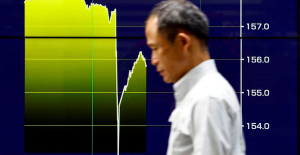 The yen jumps 3% then falls again, amid speculation of Japanese intervention
The yen jumps 3% then falls again, amid speculation of Japanese intervention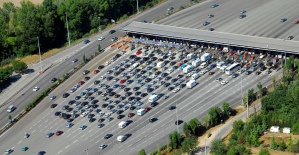 A very busy Friday on the roads of Île-de-France before the Ascension Bridge
A very busy Friday on the roads of Île-de-France before the Ascension Bridge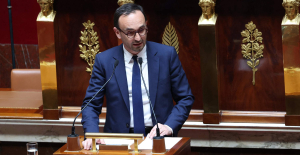 Fraud: the government is preparing new measures for the fall
Fraud: the government is preparing new measures for the fall Nike breaks the bank to keep the Blues jersey
Nike breaks the bank to keep the Blues jersey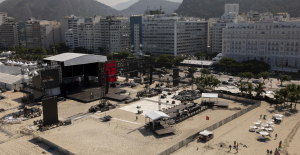 Madonna ends her world tour with a giant - and free - concert in Copacabana
Madonna ends her world tour with a giant - and free - concert in Copacabana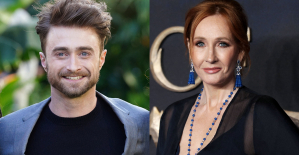 Harry Potter: Daniel Radcliffe “really saddened” by his final breakup with J.K. Rowling
Harry Potter: Daniel Radcliffe “really saddened” by his final breakup with J.K. Rowling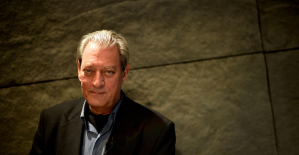 Leviathan, New York Trilogy... Five books by Paul Auster that you must have read
Leviathan, New York Trilogy... Five books by Paul Auster that you must have read Italy wins a decisive round against an American museum for the restitution of an ancient bronze
Italy wins a decisive round against an American museum for the restitution of an ancient bronze Omoda 7, another Chinese car that could be manufactured in Spain
Omoda 7, another Chinese car that could be manufactured in Spain BYD chooses CA Auto Bank as financial partner in Spain
BYD chooses CA Auto Bank as financial partner in Spain Tesla and Baidu sign key agreement to boost development of autonomous driving
Tesla and Baidu sign key agreement to boost development of autonomous driving Skoda Kodiaq 2024: a 'beast' plug-in hybrid SUV
Skoda Kodiaq 2024: a 'beast' plug-in hybrid SUV The home mortgage firm rises 3.8% in February and the average interest moderates to 3.33%
The home mortgage firm rises 3.8% in February and the average interest moderates to 3.33% This is how housing prices have changed in Spain in the last decade
This is how housing prices have changed in Spain in the last decade The home mortgage firm drops 10% in January and interest soars to 3.46%
The home mortgage firm drops 10% in January and interest soars to 3.46% The jewel of the Rocío de Nagüeles urbanization: a dream villa in Marbella
The jewel of the Rocío de Nagüeles urbanization: a dream villa in Marbella Europeans: a senior official on the National Rally list
Europeans: a senior official on the National Rally list Blockade of Sciences Po: the right denounces a “drift”, the government charges the rebels
Blockade of Sciences Po: the right denounces a “drift”, the government charges the rebels Even on a mission for NATO, the Charles-de-Gaulle remains under French control, Lecornu responds to Mélenchon
Even on a mission for NATO, the Charles-de-Gaulle remains under French control, Lecornu responds to Mélenchon “Deadly Europe”, “economic decline”, immigration… What to remember from Emmanuel Macron’s speech at the Sorbonne
“Deadly Europe”, “economic decline”, immigration… What to remember from Emmanuel Macron’s speech at the Sorbonne These French cities that will boycott the World Cup in Qatar
These French cities that will boycott the World Cup in Qatar Mercato: Verratti at Barça? A track studied
Mercato: Verratti at Barça? A track studied Rugby: after the defeat during the Six Nations, the Blues will meet the English in September for a test match
Rugby: after the defeat during the Six Nations, the Blues will meet the English in September for a test match Premier League: Liverpool unveils its new jersey for next season
Premier League: Liverpool unveils its new jersey for next season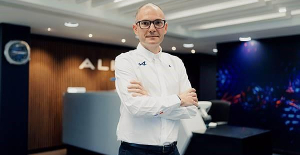 Formula 1: Alpine holds its new executive technical director
Formula 1: Alpine holds its new executive technical director




